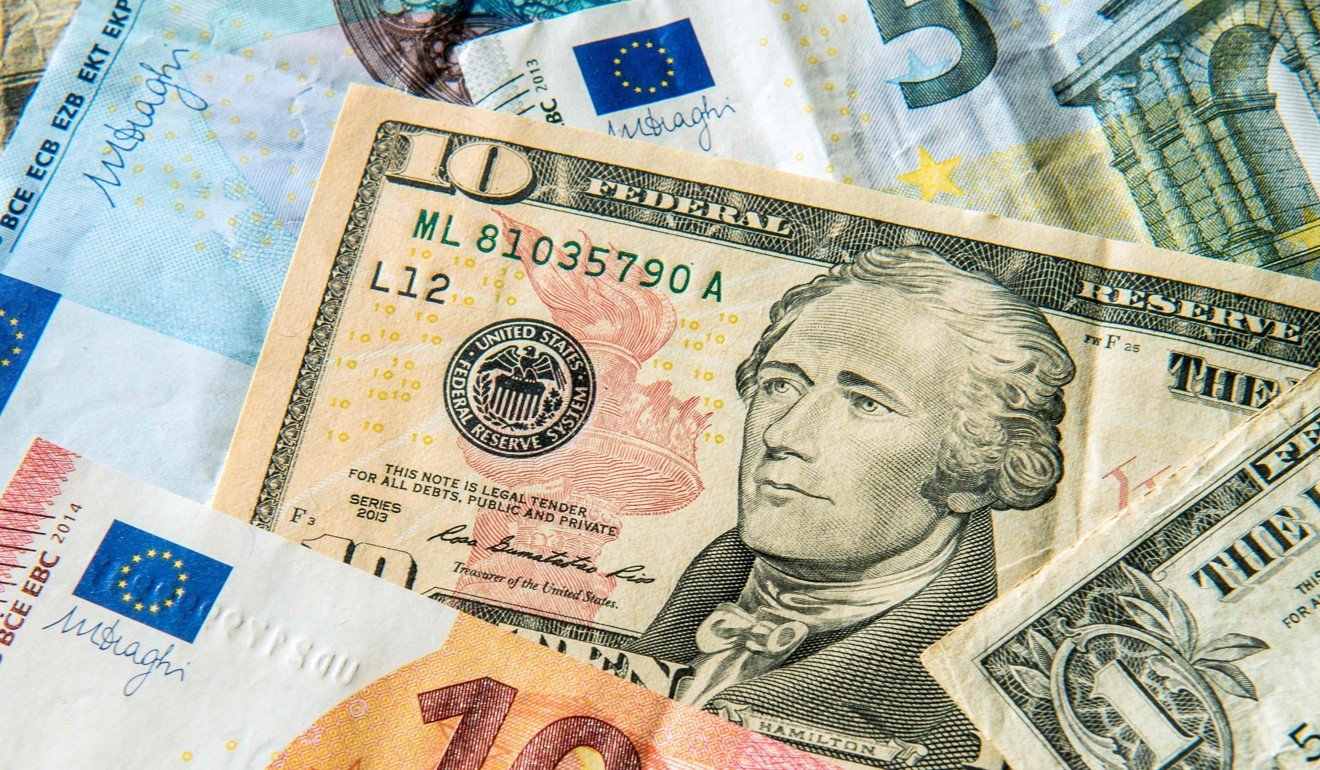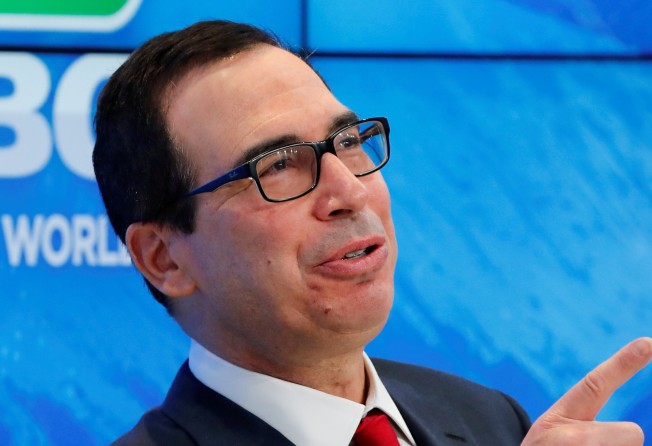
Wilting US dollar may derail the boom in emerging markets
Continued interest rate increases by the Federal Reserve could spark a U-turn for the weakening US dollar, ending the fund flows that have turbocharged emerging markets

Emerging market investors have a spring in their steps.
Since the start of this year, the equity markets of developing economies have shot up nearly 10 per cent, according to the MSCI Emerging Markets Index, a leading gauge of stocks in emerging economies. This brings the index’s gains since its post-financial crisis low in January 2016 to a whopping 72 per cent.
What is more, emerging market bonds have withstood the recent sell-off in global debt markets, convincing investors to keep pouring money into the asset class. According to JPMorgan, emerging market bond funds have attracted US$9.3 billion in inflows since the beginning of this year, having already enjoyed record inflows of US$113 billion in 2017.
The rally in emerging markets is being turbocharged by the plunge in the US dollar which is having its worst start to the year since 1987, exacerbated by contradictory messages from US President Donald Trump’s administration at last week’s World Economic Forum in Davos that reinforce the perception among traders that the White House favours a weak greenback.
The sharp fall in the dollar has been the key factor behind the nearly 15 per cent rise in the MSCI Emerging Markets Currency Index, a leading measure of the performance of developing market currencies, since January 2016. Last Thursday, the index reached its highest level on record.
Yet while the dollar’s steep decline over the past year has proved a boon for emerging market assets, it risks becoming too much of a good thing.
Although the greenback’s plunge makes it easier for emerging markets to service their dollar-denominated debts and contributes to an easing in financial conditions, increasing investors’ appetite for so-called risk assets (especially ones purchased through the use of the dollar as a cheap funding currency in a strategy known as the “carry trade”), the dollar’s hefty decline could end up backfiring on emerging markets.

The greenback is plummeting – the dollar index, a gauge of the currency against a basket of its peers, has dropped a further 3.5 per cent this year after falling 10 per cent in 2017 – at a time when the US economy is at full employment, a massive tax cut has just been signed into law and inflation is rising. By raising the cost of imports, the slumping dollar is fuelling inflationary pressures and making it more likely that the Federal Reserve will hit its 2 per cent inflation target.
Yet the sharpness of the dollar’s decline, and the momentum behind its fall, increase the risk of a disorderly depreciation which could cause a sharper-than-expected rise in inflation. This could force the Fed to tighten monetary policy more aggressively, fuelling volatility and, potentially, causing a full-blown bear market in government bonds, putting risk assets, especially emerging markets, under strain. Even if the dollar’s decline is more gradual – which was the case up until the last month or so – a weakening greenback will embolden the Fed to hike rates further.
As Bank of America Merrill Lynch noted in a report published last week, “the Fed will see the weak dollar as a sign of easy financial conditions and a green light to keep tightening monetary policy.”
The plunging dollar is also becoming a source of concern for export-reliant emerging markets, particularly South Korea where the won, the country’s currency, is already at a three-year high versus the greenback amid a contraction in the economy last quarter. Thailand, another export-dependent economy, hinted earlier this month that it may intervene to stop its currency, the baht, strengthening further against the dollar.
More worryingly, a sliding dollar is helping some vulnerable emerging markets avoid taking tough decisions. A good example of this is Turkey where the more than 5 per cent rise in the country’s currency against the greenback since late November is relieving some of the pressure on the central bank to tighten policy more aggressively to curb an inflation rate that has surged to nearly 12 per cent.
Yet the biggest risk facing emerging markets is not that the dollar continues to weaken, but that the greenback suddenly stages a comeback, wrong-footing investors (who are excessively bearish on the dollar considering that the Fed is raising rates) and sparking volatility across asset classes, especially emerging markets.
Either way, emerging market investors should treat the dollar’s sharp decline with caution.
Nicholas Spiro is a partner at Lauressa Advisory